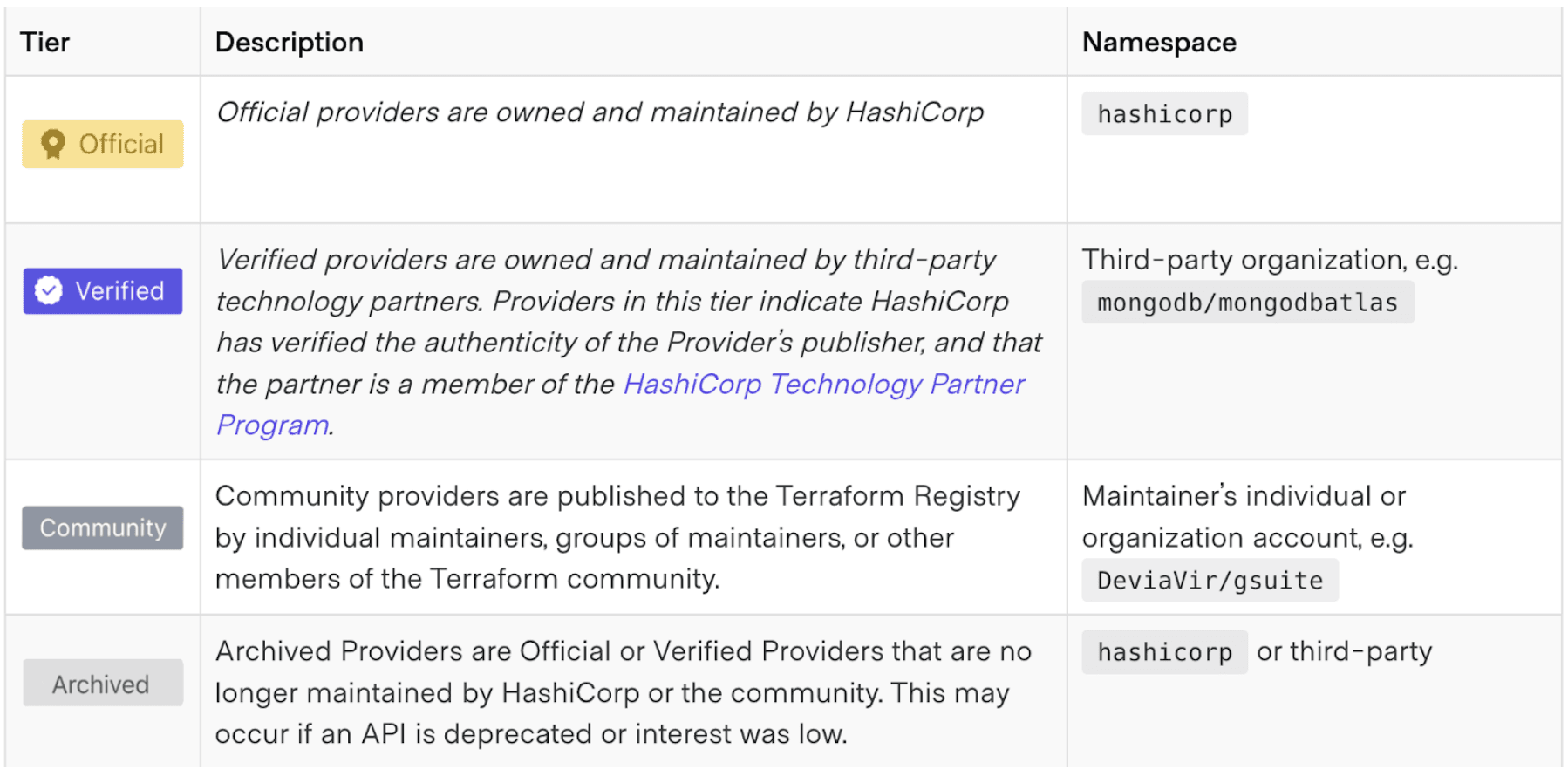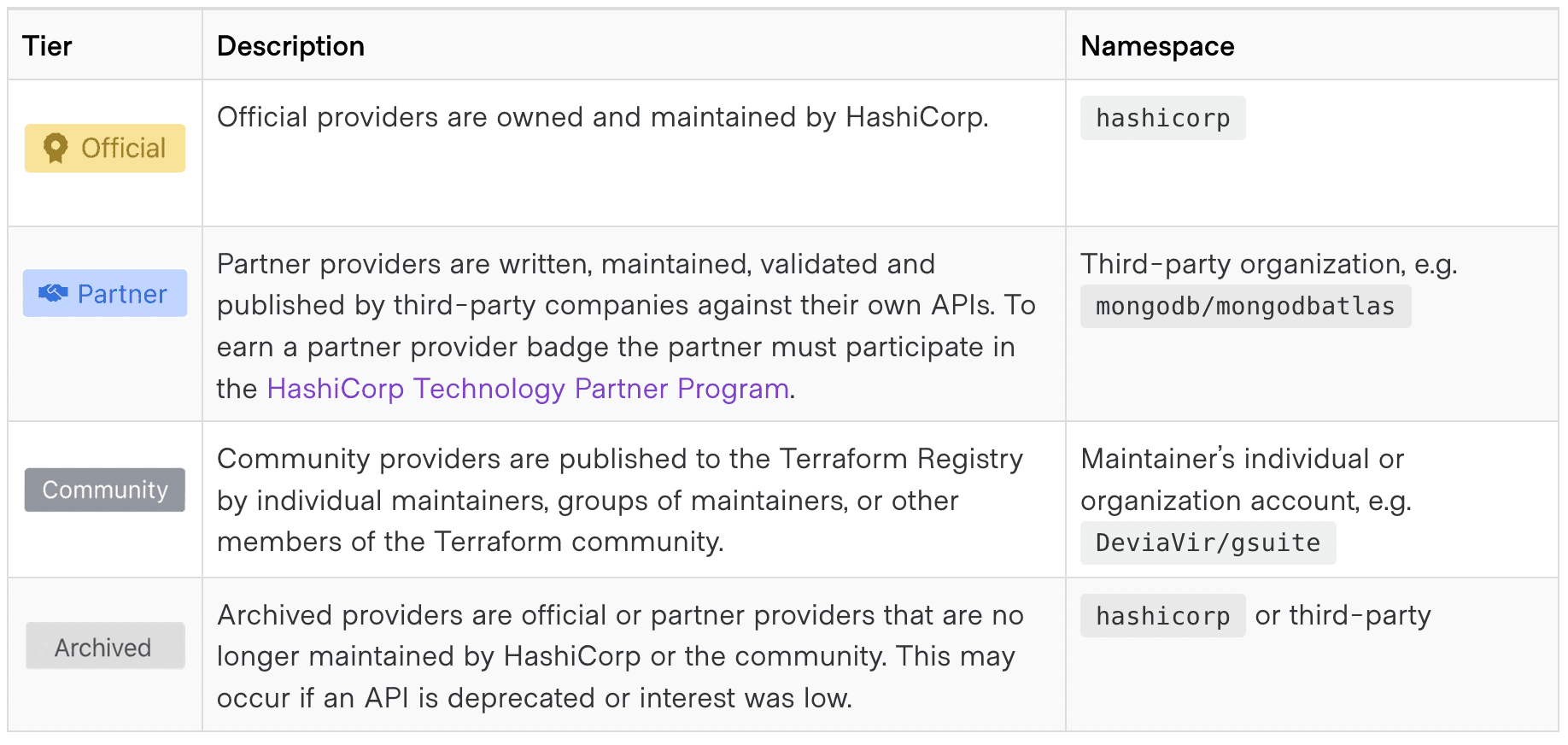HashiCorp’s Terraform Registry aims to be a single-pane experience for users of Terraform who need reusable components to set up their infrastructure as code. Over the past several months, we’ve introduced Sentinel policies to the Terraform Registry in addition to providers and modules. This sets organizations up for success as they standardize reusable infrastructure code for their developers.
As we continue to evolve the ecosystem, we have set goals to continue to expand the Registry and make it more flexible and consistent. As a part of this effort, we want to create consistency and clarity around how modules, providers, and policies are represented within the Registry.
We have made the following changes to module and provider tagging in the Registry, effective immediately.
»What Is Changing?
Before:

Now:

Partner providers are written, maintained, validated, and published by third-party companies against their own APIs. To earn a partner provider badge, the partner must participate in the HashiCorp Technology Partner Program.
Updated Tag:

»Modules and Providers
We have removed the “verified” tag from all Terraform modules, and we have added a “partner” tag to modules that are owned and developed by our cloud and technology partners. This confirms the source of the module and helps provide visibility and clarity to users in the registry. This also helps to delineate partner modules from non partner-owned modules.
For our partner-owned Terraform providers, we are replacing the verified tag with a partner tag.
»Growing the Registry
As always, we are thankful to our community members for their valuable contributions to the HashiCorp Terraform Registry and ecosystem. Our ecosystem is improved by each new module or provider added, and reflects the wide range of use cases for Terraform practitioners to utilize. The Registry continues to be accessible for Terraform users to decide which reusable components best fit their requirements, and as we continue to grow the Terraform Registry and its capabilities, we will continue to strive for clarity and consistency in the Terraform experience.
Visit the Terraform Registry for the latest modules and providers. Learn more about the partner verification process with the Terraform Integration Program.








